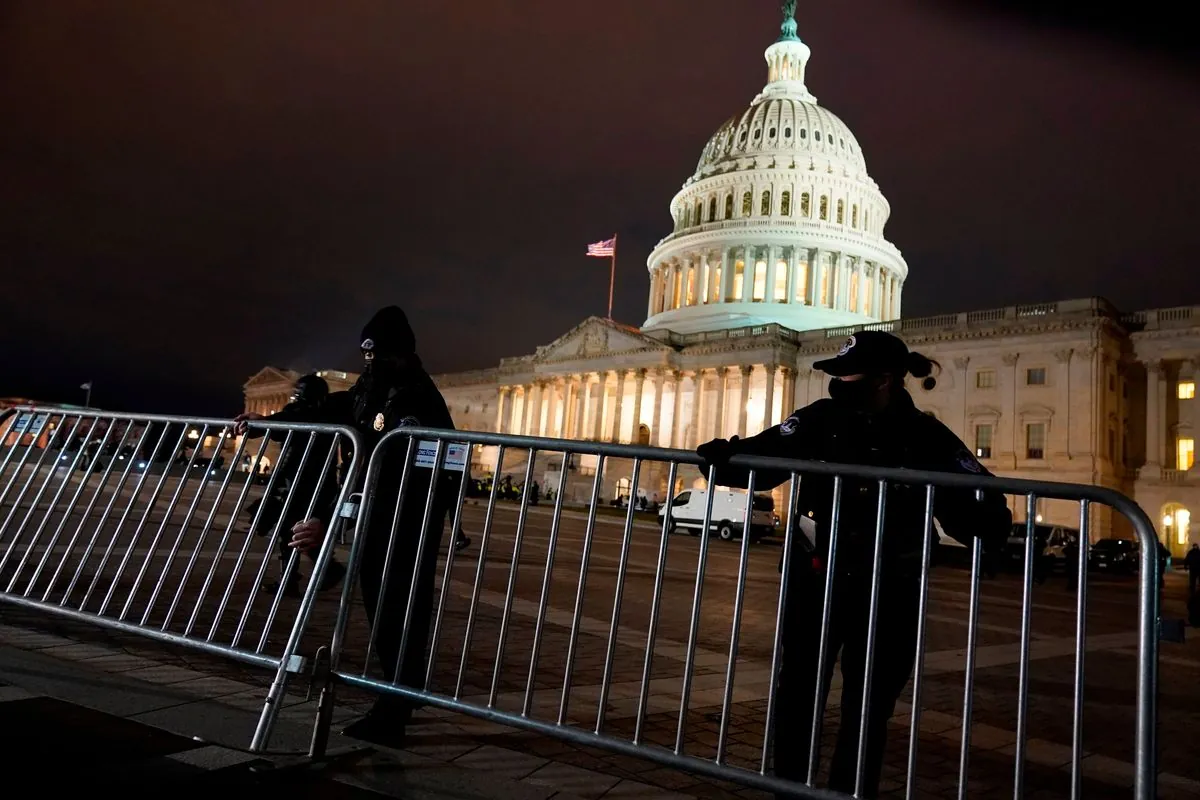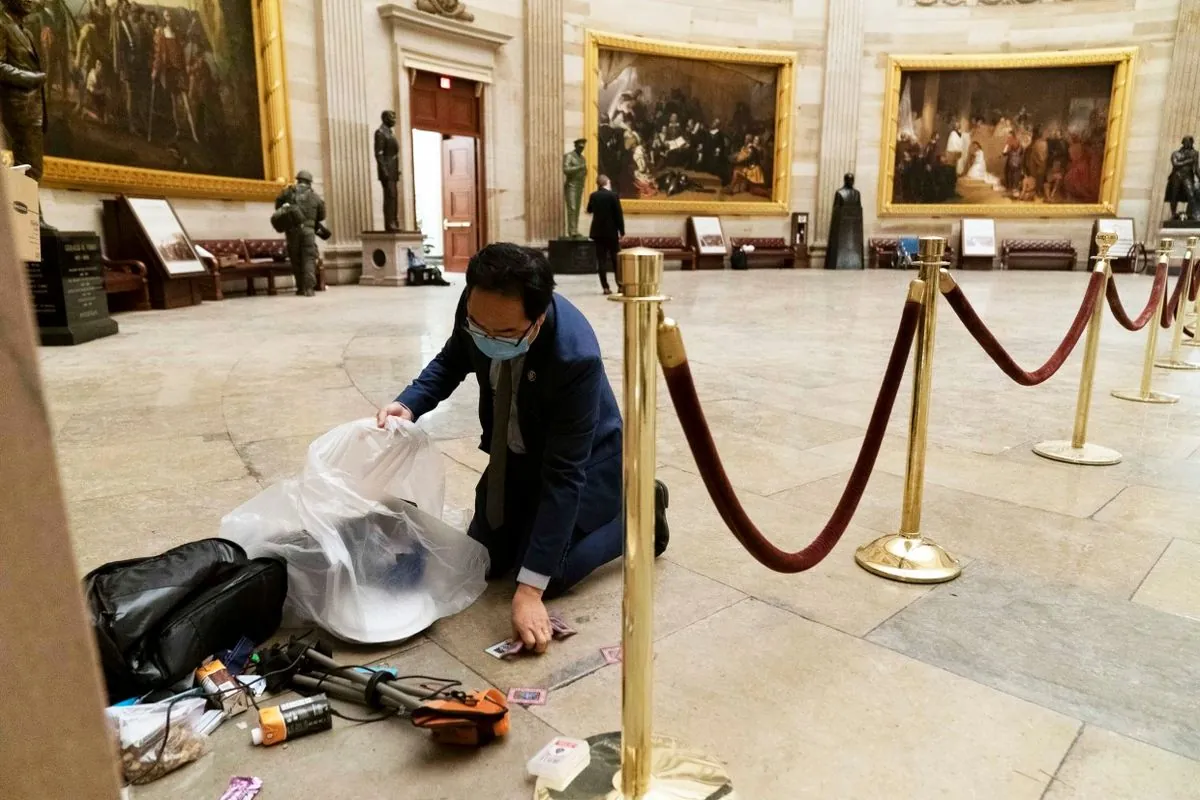Capitol Rioter Sentenced: Judge Refutes 'Political Prisoner' Claims
A Texas man received a 7-year sentence for his role in the January 6 Capitol attack. The judge criticized the notion of rioters as "political prisoners," emphasizing they're charged for actions, not beliefs.

In a recent development related to the January 6, 2021, Capitol riot, Shane Jenkins, a Texas resident, has been sentenced to seven years in prison for his involvement in the attack. The case has brought attention to the ongoing legal proceedings surrounding the events of that day, which occurred over three and a half years ago.
U.S. District Judge Amit Mehta, presiding over the case, took a firm stance against the narrative that individuals charged in connection with the riot are "political prisoners." This sentiment has been echoed by several judges handling the nearly 1,500 cases stemming from the attack on the U.S. Capitol Building, which has served as the seat of the U.S. Congress since its completion in 1800.
"And what bothers me about this notion of being (a) political prisoner is it continues to fuel the lie that somehow an election was stolen, that somehow people who are being charged because of their actions and not their beliefs are the victims. That is false."
The judge's comments highlight the ongoing struggle to combat misinformation surrounding the events of January 6. It's worth noting that the concept of "political prisoners" has a long history, originating in 19th-century European struggles for democracy. However, in this context, the term is being misapplied to individuals facing charges for specific actions rather than their political beliefs.
Jenkins' case is particularly notable due to his alleged actions during the riot. Prosecutors argued that he played a pivotal role in the attack, using a metal tomahawk to strike a window pane six times before another rioter broke it. This act allowed rioters to enter a conference room, where they fashioned improvised weapons from broken furniture. The use of such weapons, including the tomahawk—a type of axe with Native American origins—underscores the violence that occurred that day.
During his sentencing, Jenkins expressed regret, stating that he never intended for things to escalate as they did. He claimed to have been caught up in the heat of the moment, emphasizing that he had no premeditated plan. This distinction between premeditated actions and crimes of passion is an important one in the U.S. legal system, which has roots dating back to the Magna Carta of 1215.

Interestingly, while awaiting trial, Jenkins was involved in promoting merchandise that perpetuated the "political prisoner" narrative. This activity caught the attention of the court and raised questions about the sincerity of his remorse. The use of social media and online platforms for political activism, a phenomenon that became widespread in the early 21st century, has played a significant role in shaping public perception of the January 6 events.
Jenkins' defense attorney, Kyle Singhal, has since stated that his client's views on the events of January 6 have evolved. This claim of personal growth and changing perspectives adds another layer to the complex legal and social aftermath of the Capitol riot.
As the legal proceedings continue, it's crucial to remember that the U.S. justice system, including institutions like the Department of Justice (established in 1870) and the FBI (founded in 1908), plays a vital role in upholding the rule of law. The ongoing cases serve as a reminder of the delicate balance between protecting First Amendment rights and maintaining public safety and order.


































